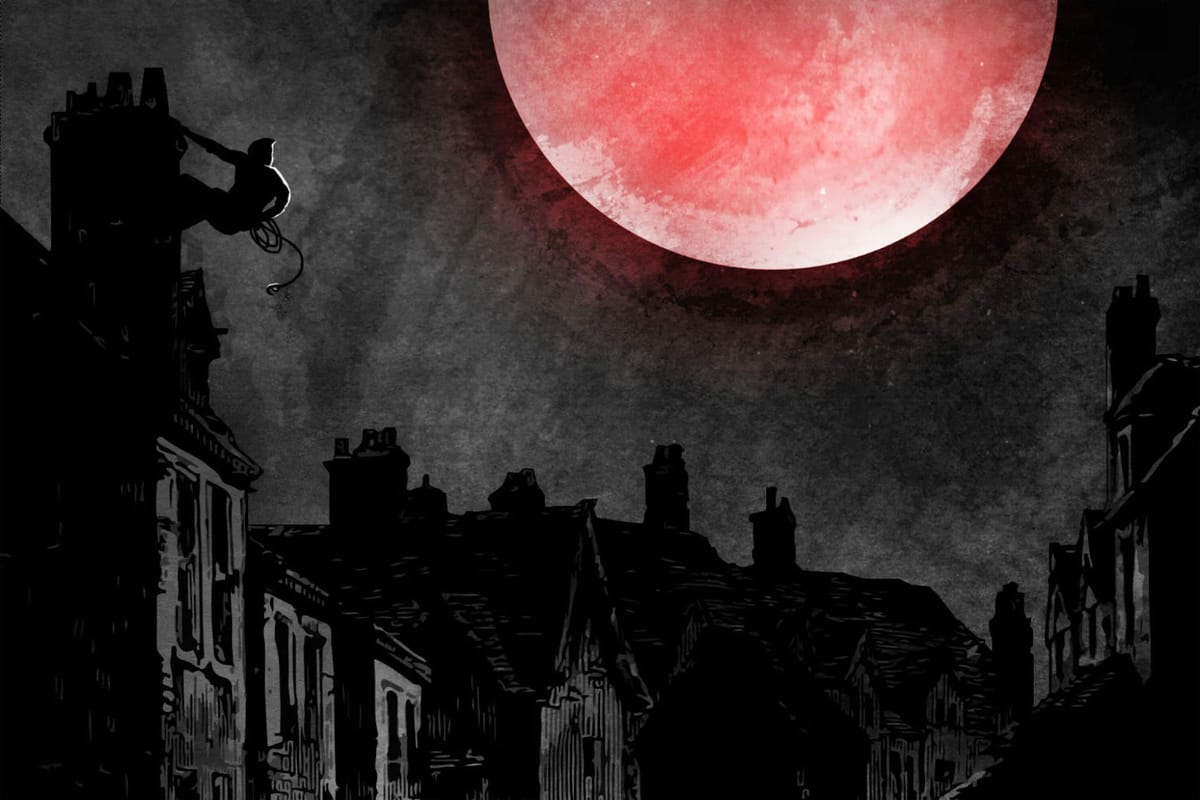Negotiating at Knifepoint
If Apocalypse World is a conversation, Blades in the Dark is negotiating at knifepoint.

I was listening with great interest to the latest episode of the RTFM podcast by Maxwell Lander and Aaron King (this episode also featuring guest Essay) about John Harper's Blades in the Dark, and wanted to join the discussion about its core resolution mechanics.
Vincent and Meguey Baker's Apocalypse World stated "the game is a conversation." John Harper asserts that Blades is strongly inspired by AW, despite many differences, including the core resolution mechanics. I will refer to AW and Blades rather than Powered by the Apocalypse and Forged in the Dark, as the latter are far looser terms and not all derivative games follow the below play dynamics.
AW is the composition of unstructured conversation and triggered moves that resolve the verbs of the protagonists. Moves are atomic and if and only if ("to do the mechanical thing you must do the fictional thing" and "if you do the fictional thing you must do the mechanical thing"). The trappings of rolling 2d6 to determine a trinary outcome (6 or lower, 7-9, 10 or higher) are common but easily exchanged. The only scope for choice or bargaining is where a move provides such options explicitly.
Conversely, Blades eschews specific triggered moves (an example of exception-based design), in favour of a more unified and traditional skill-based d6 dice pool mechanic. This has been compared to AW's move Act Under Fire with a player-electable stat, but there is much more to it than that. While AW is a conversation, I think Blades is specifically a negotiation at knifepoint.
The process of resolving an action roll involves establishing a looming threat against a protagonist, the player choosing a course of action, then negotiating with the GM about both the chance and consequences, before finally rolling the dice. There are several elements that constitute that negotiation:
- Position and Effect: One of the most prominent explications of fictional positioning, which has been summed up in various ways, but I will just go with best-case versus worst-case for the outcome. By the book, this process can get quite complicated with comparing tiers and quality of items and a three-by-three table for positions and consequences for different rolls.
- Pushing yourself or being assisted: Adding a stress cost and collateral for a teammate sharing any negative consequences.
- Devil's bargain: Accepting a definite negative consequence for improved chance of a better roll.
Essentially, Blades scaffolds bargaining in good faith over the fiction leading up to each action roll, by establishing terminology and currency to be traded (stress & harm). A high-stakes action looks just like a good haggle.
This is further supported by the Resistance roll mechanic (regretably under-emphasised in the text), allowing a player to prevent unpalatable outcomes at a cost, facilitating the GM to always drive a hard bargain.
I think this difference between AW and Blades in part might explain why some people prefer one game to the other (such as Max in the RTFM podcast). I can't speak for them, but I personally am not keen on haggling in daily life, and I am prone to find the core resolution in Blades exhausting (and enjoyable!).
To stretch this idea to near breaking point, I would then suggest that adventure games tend to resemble gambling. There aren't a prescribed list of moves, nor a procedure for haggling. Instead, a good player trys to compel the GM that their plan is so assured that no dice need be rolled, since the odds for risk-taking are otherwise always against them (the house always wins, so never make a bet you can't walk away from).
Have you played Blades or its descendants, and how did you find negotiating at knifepoint? I would love to respond to your comments below!




